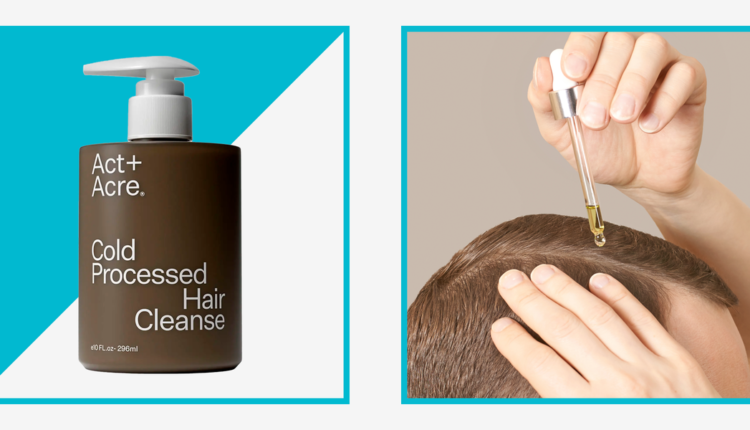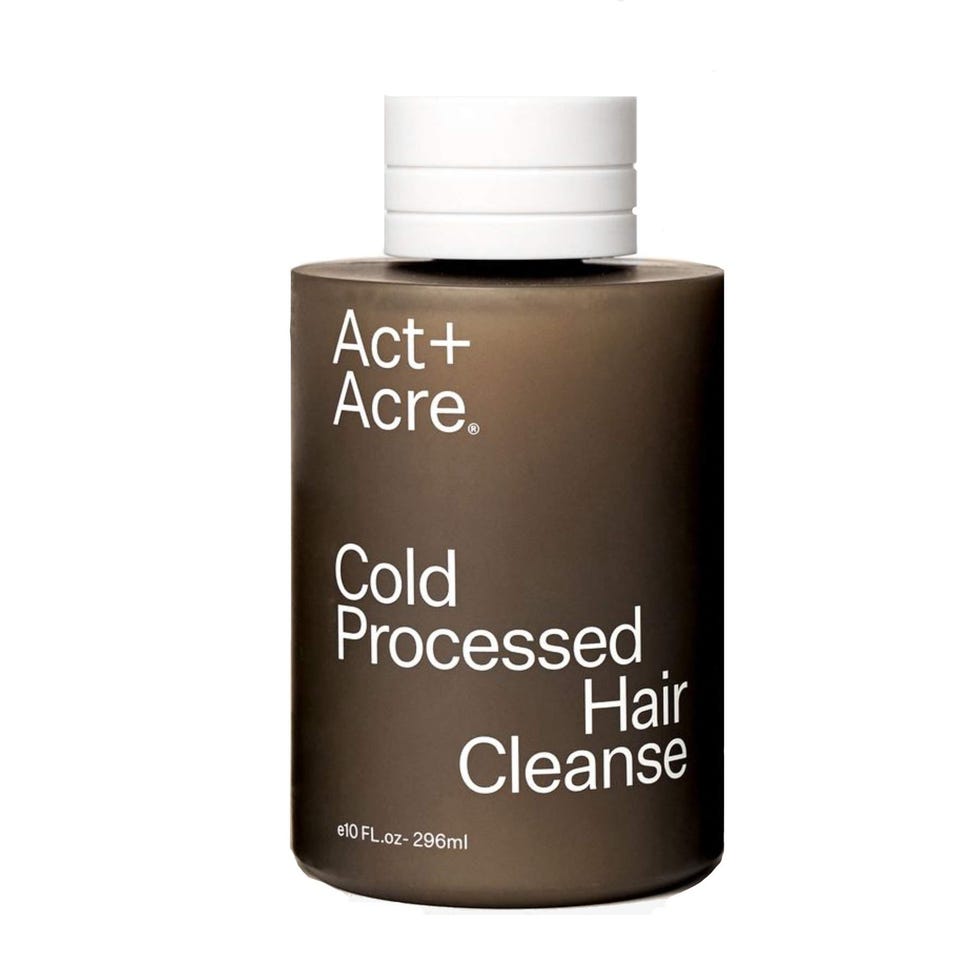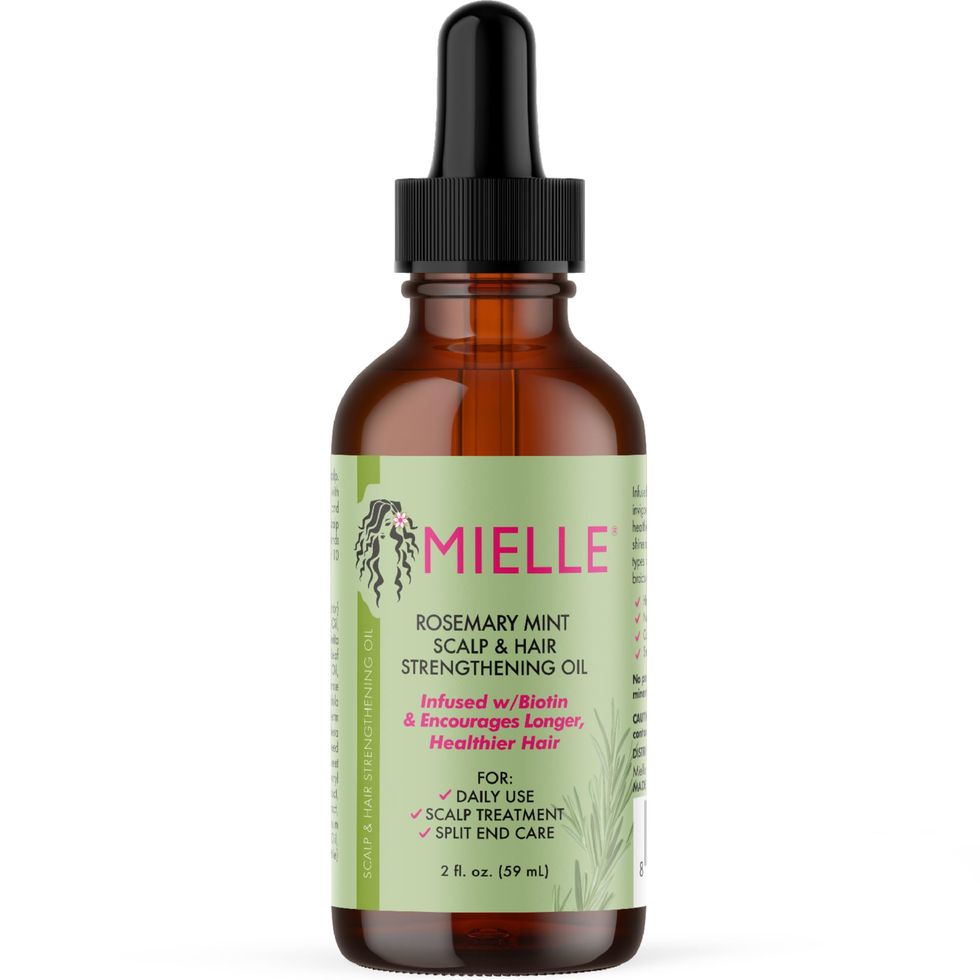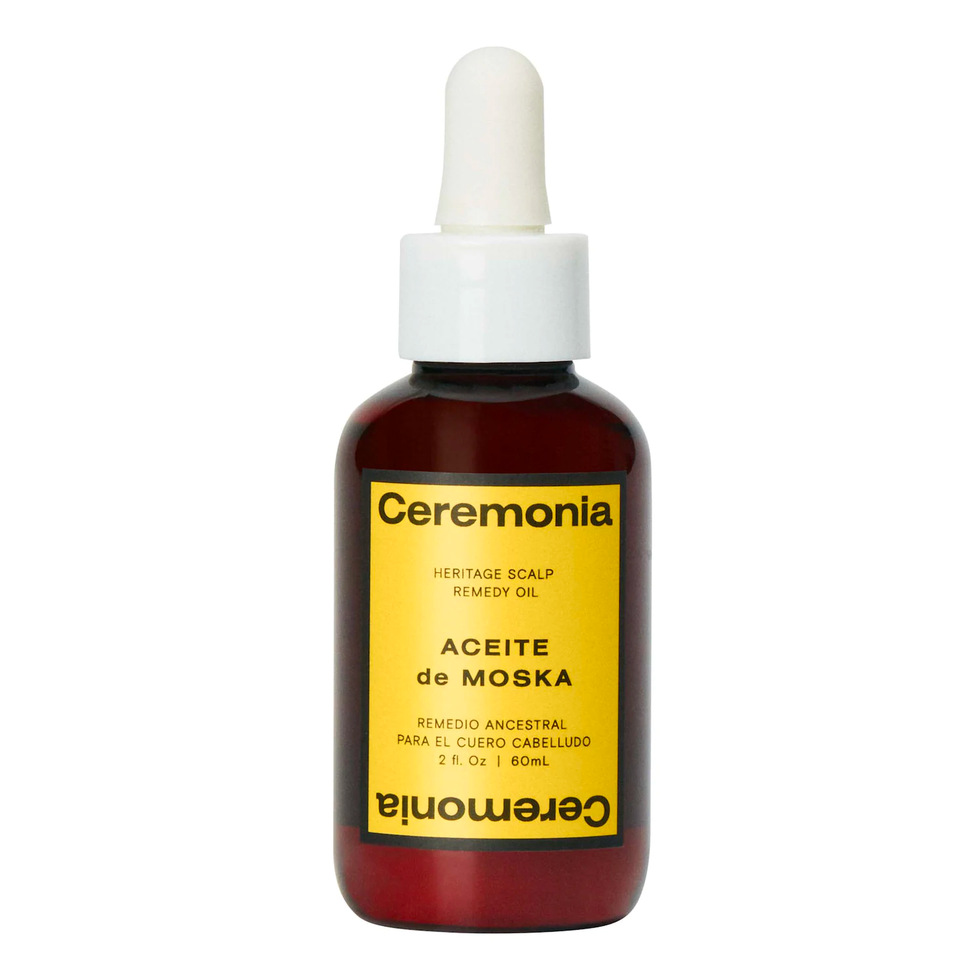For most men, going bald (either partially or completely) has long been an inescapable part of the aging process. It’s so ubiquitous that by the age of 35, approximately 66 percent of men will have experienced some degree of hair loss. Unfortunately, this common problem doesn’t have a simple solution. While there are a few FDA-approved topical treatments and oral medications, recently people on TikTok are claiming that using rosemary oil for hair growth is just as effective as over-the-counter drugs.
Dubbed by some as “nature’s Rogaine,” people have been using rosemary oil as a natural hair loss treatment for centuries, but the remedy has only recently started to go viral on TikTok. Beyond the convincing before and afters, there is some even stronger evidence to suggest that rosemary oil is the miracle hair loss solution that some people claim it to be: one study has shown that rosemary oil was just as effective a minoxidil at treating androgenetic alopecia (male or female pattern baldness).
So, does it really work? Is rosemary oil the Rogaine dupe the world has been waiting for, or is it just another overhyped fad? We tapped board-certified dermatologist Dr. Kseniya Kobets to find out the truth about using rosemary oil for hair growth.
The Best Rosemary Oil for Hair Growth Products to Buy Online
Does Rosemary Oil Really Help With Hair Growth?
According to Dr. Kobets, there is some evidence in the literature to suggest that rosemary oil can help hair growth by stimulating hair follicles with cytokines and growth factors.
Hair loss can’t be blamed on a single condition or problem. Although genetic hair loss is the primary cause, how and when your hair falls out is largely circumstantial. Treating hair loss is similar in that the best solutions tackle the problem from multiple vantage points. Rosemary oil provides multiple benefits that can help with hair growth in a few different ways. It has antimicrobial properties, which also helps in dandruff by decreasing the yeast overgrowth. A 2015 study compared rosemary oil to minoxidil, with both having similar results but there was less itching with rosemary oil. There is also some evidence that rosemary oil can help increase blood supply in the scalp, which plays an important role in stimulating hair follicles and encouraging hair growth.
How Does Rosemary Oil Regrow Hair?
Rosemary oil is typically available in essential oil form, which are highly concentrated natural extracts taken from the leaves, flowers and the stems of the rosemary plant. In this concentrated form, rosemary oil is said to have anti-inflammatory, circulation-improving, and hormone-balancing properties—all of which can contribute to hair growth.
“One possible mechanism of action that rosemary oil can help with hair loss is in androgenetic alopecia since it has claims in blocking damaging hormones in the scalp,” says Dr. Kobets.
She goes on to explain that rosemary oil contains caffeic acid, rosmarinic acid, camphor, and 12-methoxycarnosic acid which give it antioxidant, antifungal and anti-inflammatory properties that can benefit the skin and scalp, which can overall help hair health.
Rosemary oil is thought to improve blood circulation, which plays a major role in preventing hair loss. When hair follicles are starved of blood supply, they die off, leading to patchy and uneven hair loss.
How to Use Rosemary Oil for Hair Growth
Because rosemary essential oil is highly concentrated, it’s important to use it with caution if you plan to use it on its own. Add a few drops into the palm of your hand and mix with a carrier oil like jojoba, rosehip, or coconut oil. You can also add a few drops to your shampoo. “Men can use rosemary oils at the base of the roots, one to three times per week or less often if the hair is already oily,” says Dr. Kobets. If you have a naturally dry scalp, you may actually like using rosemary oil more frequently, as it may reduce dryness and dandruff when used regularly. On the other side of the coin, men with a more oily scalp may only be able to tolerate it once a week. Pay attention to how your hair reacts to dictate your schedule for using rosemary oil for hair growth.
It’s best to apply your rosemary oil mixture to a dry scalp and let it sit for a few minutes before continuing with your hair washing routine. “Since oil is lipophilic, theoretically applying oil on wet hair would probably affect absorption, as water may repel oils away,” says Dr. Kobets.
Rosemary oil can weigh your hair down and make hair appear oily if not properly washed out, so make sure you give your hair a good rinse after applying your rosemary oil treatment.
How Long Does it Take to Regrow Hair After Using Rosemary Oil?
Even the most effective hair loss solutions still take time to see results. “There are no great studies to know exactly how long it takes improvement, but usually it will probably take 4-6 weeks to help with hydrating the scalp, and about three months to see results, as it takes time to have hair grow out,” says Dr. Kobets. Stick with a regular routine of using rosemary oil for hair growth if you want to see results. It helps to take pictures each week to monitor your progress and encourage you to keep going.
What Should Guys Look for in Rosemary Oil Products?
While you can certainly play mixologist and concoct your own rosemary oil for hair growth potion, there are a ton of products you can get off the shelf that include the ingredient. Look for rosemary oil that’s already mixed with other beneficial oils. “I would recommend using oils that are specially formulated for the scalp and make sure there are no strong fragrances in the mix,” says Dr. Kobets. “There are also some mixed in carrier oils that could be helpful to hydrate the scalp (like coconut oil) or, on the other hand, can be more irritating, like sandalwood, clover and menthol oils like peppermint oil.”
Shop More of the Best Hair Growth Products Online
Hair Growth Products | Hair Growth Shampoos | Beard Growth Kits |
Freelance Writer
Cristina Montemayor is a freelance writer and journalist living in Austin, Texas, covering beauty, grooming, style, and culture. Her work has appeared in Very Good Light, BRIDES, Elite Daily, among others.










Comments are closed.